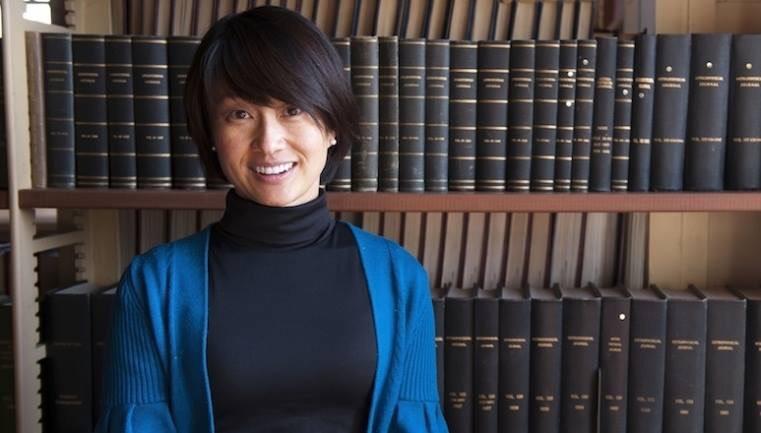Faculty Member Renewed for Endowed Health Equity Professorship

Posted in News Story
APRIL 27, 2017 — Last month, Associate Professor Jennifer Huang Bouey, PhD, MPH, MBBS, was renewed for a three-year term as the Susan H. Mayer Professor for Health Equity. Bouey was selected through a competitive process administered by the School of Nursing & Health Studies’ Committee on Mission and Values. The incumbent supports the school’s work in health equity, including further development of its Center for Health Equity, Research, Implementation, and Teaching (CHERITH), which was approved by Georgetown’s Board of Directors in 2001.
Patricia Cloonan, PhD, RN, the school’s dean, noted that Bouey “will continue her important community engagement work that contributes to our collective health equity portfolio. I know that she and the committee look forward to collaborating with faculty and staff on outreach opportunities involving practice, research, scholarship, service, and teaching.”
The professorship includes endowed grant funding, which is directed to research on underserved populations at home and abroad.
“Public health must have a consciousness of social justice, which means that we must serve marginalized and underserved populations,” said Bouey. “These populations need more help to overcome barriers to basic healthcare services.”
Globally, Bouey’s research focuses on chronic and acute disease vulnerability and risk factors among rural-to-urban and cross-border migrants in China. In response to dramatic economic change in the last 30 years, over 243 million Chinese citizens have migrated from rural communities to urban centers. Migrant workers often remain in the shadows, facing unique health risks and barriers to care because of their mobility, limited labor market, and legal status in the city.
Grant funding is also targeted locally. By partnering with community organizations in Washington, DC, Bouey and her team conduct research to better understand barriers to care for underserved populations in the nation’s capital. She is particularly interested in those at high risk for HIV, including homosexual African American men and low-income African American women.
Community-based research efforts have proven fruitful; through partnerships with organizations like HIPS, Bouey’s team found that perceived stigma prevents many patients from disclosing their living on the street with their primary care physicians. Such omissions hinder access to necessary prevention services. To address this and other issues, Bouey’s team established a community research workshop series for community organization staff in Northeast DC. Speakers at these workshops include researchers from Georgetown, American University, and Johns Hopkins University.
“It’s not easy for a researcher to establish trust with the community,” she said. “I think we did well in the last three years to gradually gain the trust of community organizations, and find a synergy working with them. It’s good to have another three years to nurture these relationships.”
Over the coming three-year term, Bouey hopes to continue supporting a part-time research assistant (RA) to collect data and facilitate workshops. The RA would be attached to community partners on a semi-permanent basis, building rapport with organizers and patients on-site.
Bouey will continue to incorporate Georgetown students into her research projects. In fall 2016, an undergraduate was funded to present their research – health barriers to transgender women in DC – at the American Public Health Association’s annual meeting. Others have been sponsored to present at the National Institute on Drug Abuse and university conferences. Additionally, more than ten students have been published as co-authors on Bouey’s scholarly papers.
“Our students are passionate about health equity and helping the community,” said Bouey. “We are in a city that has very polarized neighborhoods. There are lots of needs, so I think that we are in a great position to teach students about service and research.”
